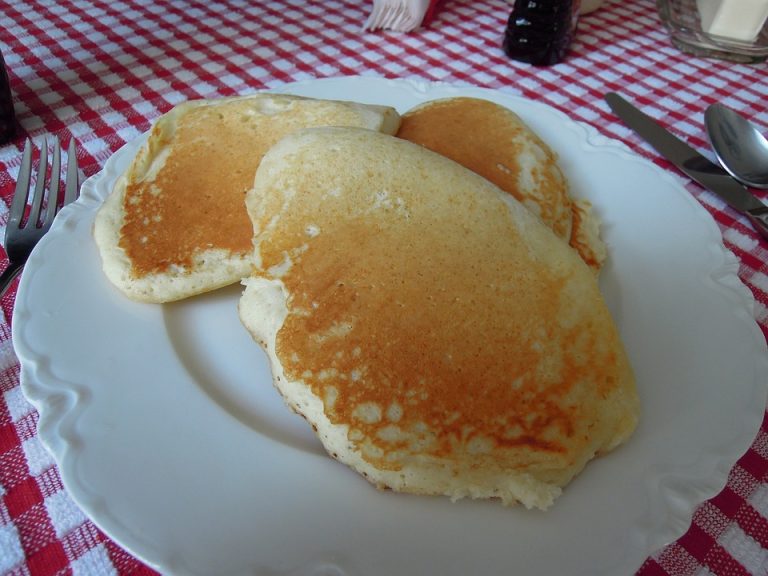
Pancakes are a favorite breakfast dish for many people. However, if you’re watching your calorie intake, it’s essential to know just how many calories are in a homemade pancake. Fortunately, homemade pancakes can be a relatively healthy breakfast option, especially when compared to pre-packaged pancake mixes or those served at restaurants.
When making homemade pancakes, it’s easy to control the ingredients and portion size, allowing you to create a healthier and lower-calorie version. The calorie content of homemade pancakes can vary depending on the specific recipe and serving size, but a basic pancake made with flour, eggs, milk, and a small amount of oil or butter typically contains around 100-150 calories per pancake (roughly 4-inch diameter).
Let’s break down the calorie content of some common ingredients found in homemade pancakes:
– Flour: One cup of all-purpose flour contains approximately 455 calories, with a standard pancake recipe calling for 1 to 1.5 cups of flour.
– Eggs: A large egg contains about 70 calories. Most pancake recipes call for 1-2 eggs.
– Milk: A cup of skim milk contains around 83 calories, while a cup of whole milk contains around 150 calories.
– Oil or Butter: One tablespoon of vegetable oil contains approximately 120 calories, and one tablespoon of butter contains around 100 calories.
To make your pancakes even healthier and lower in calories, consider using whole wheat flour or a mix of whole wheat and all-purpose flour, and substitute some or all of the eggs with mashed bananas or applesauce. Additionally, swapping some or all of the milk with almond milk, oat milk, or another lower-calorie milk alternative can further reduce the calorie content.
Toppings and additions also contribute to the overall calorie content of pancakes. Maple syrup, honey, fruit preserves, and whipped cream are all high in sugar and calories, so it’s essential to be mindful of portion sizes when including these toppings.
In addition to calorie content, it’s important to consider the nutritional value of pancakes. Homemade pancakes can be a good source of carbohydrates, protein, and other essential nutrients, especially if you incorporate whole grains and add fruit or nuts to the batter. However, they can also be high in refined carbohydrates and low in fiber, so it’s best to pair them with nutrient-dense toppings and sides like fresh fruit, yogurt, or nut butter to create a more balanced and satisfying breakfast.
In conclusion, homemade pancakes can be a relatively healthy and lower-calorie breakfast option when prepared mindfully and with nutritious ingredients. By being mindful of the ingredients and toppings you use, you can enjoy a delicious and satisfying breakfast without consuming an excessive number of calories.